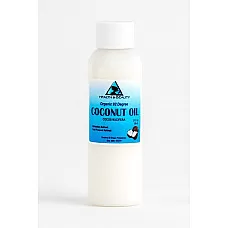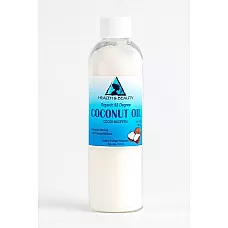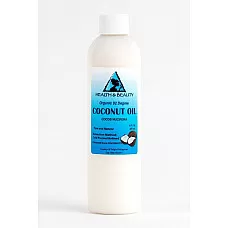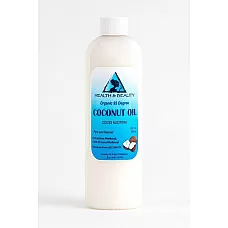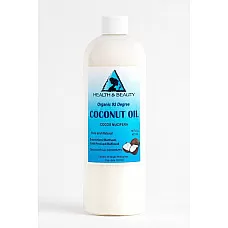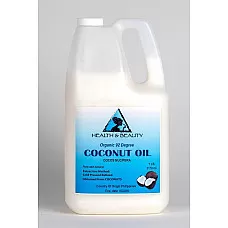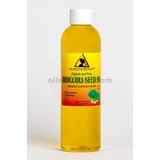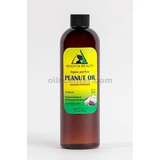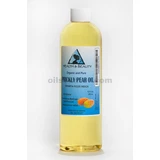$0.00
Checkout
Composition and therapeutic and prophylactic effect of coconut oil
The wide range of healing effects of coconut oil, as well as its various cosmetic applications, are determined primarily by the high concentration of saturated fatty acids in this plant product (lauric (50%), myristic (20%), palmitic (9%), capric (5%), caprylic (5%), stearic (3%), etc.), as well as the presence of monounsaturated fatty oleic acid in the composition of coconut oil, which is very useful for the cardiovascular system and skin (which accounts for 6% in the fatty acid composition of coconut oil). The content of polyunsaturated fatty acids (linoleic omega-6 acid and linolenic omega-3 acid) in coconut oil is insignificant and amounts to about 0.5%.
Coconut oil also contains betaines, ethoxylates of fatty esters, ethanolamides, polysorbates, monoglycerides, polyols of esters, vitamins (A, E, B1, B2, B3, K and C), iron, calcium, phosphorus and other macro and microelements ...
When consumed regularly, coconut oil
- Has anti-inflammatory, pronounced antifungal and bactericidal effect, and therefore can be used as an adjunct in the complex treatment of candidiasis, mycoses, ringworm, herpes, hepatitis, influenza, cytomegalovirus, ARVI, infectious and inflammatory diseases of the respiratory system, urinary tract, and reproductive systems. To a large extent, this property of coconut oil is due to the presence of vitamin E, lauric, myristic, capric and caprylic fatty acids in its composition.
- Promotes the improvement of the functional state of the cardiovascular system, prevents the development of atherosclerosis, thrombosis, ischemic heart disease and arterial hypertension. Coconut oil contains components (lauric, oleic, palmitic fatty acids, vitamin E), which help to reduce the level of "bad cholesterol" in the blood (provoking the formation of atherosclerotic plaques on the walls of blood vessels) and lowering high blood pressure. Vitamin E, which is part of coconut oil, also reduces the increased viscosity of the blood and strengthens the walls of the arteries, thereby preventing the formation of blood clots in the lumens of blood vessels.
- Has a beneficial effect on the functional state of the thyroid gland
- Reduces the risk of developing diseases of the digestive system. Coconut oil, which activates the healing of damaged mucous membranes of the gastrointestinal tract, is a particularly useful product in the diet of patients with ulcerative colitis and Crohn's disease. Lauric acid contained in coconut oil exhibits high antibacterial activity and is very effective in combating the Helicobacter pylori bacterium, which is the causative agent of diseases such as gastritis, gastroduodenitis, gastric ulcer and duodenal ulcer.
- Useful for patients with type II diabetes mellitus, prevents the development of obesity. Coconut oil improves the natural production of insulin by the pancreas, activates and accelerates metabolic processes, and helps to restore normal blood glucose levels in diabetes mellitus.
- Prevents the development of fatty degeneration of the liver, urolithiasis and cholelithiasis
- Has a sedative and anti-stress effect
- Has an antioxidant effect, prevents premature aging, reduces the risk of developing Alzheimer's disease and cancer.
- Prevents the development of caries and age-related osteoporosis, reduces the risk of developing degenerative-dystrophic diseases of the joints. This effect of coconut oil is associated with a high concentration of calcium and phosphorus, hyaluronic acid (which is the basis of the inter-articular fluid), and is also due to the ability of this plant product to increase the efficiency of absorption of calcium and magnesium necessary for the formation of bone tissue, tooth enamel and dentin.
For cosmetic use, coconut oil
- Quickly absorbed, leaving no oily sheen or sticky feeling, nourishes and softens the skin. The myristic and oleic acids contained in coconut oil provide deep and fast penetration of the components contained in cosmetics into the skin.
- Promotes the preservation of moisture by the skin and the restoration of the protective functions of the epidermis, protects the skin from drying out and peeling, helps to restore the normal acid-base balance of the skin. The moisture-retaining components of coconut oil, such as vitamin E, hyaluronic, caprylic, oleic acids, protect the skin from drying out and peeling. For cosmetic use, coconut oil creates a protective layer on the skin that maintains the optimal moisture balance of the skin.
- Tones the skin, gives it elasticity and firmness, helps smooth out fine wrinkles, prevents the appearance of stretch marks (stretch marks) of the skin. Coconut oil contains components that stimulate the natural production of collagen and elastin (including palmitic acid, vitamins C, A and E).
- Accelerates the process of natural skin regeneration, activates granulation and epithelization of damaged skin areas. Rich in lauric acid, vitamins A and E, coconut oil is great for treating small wounds, burns, and cracked skin.
- Soothes irritated or inflamed skin. Coconut oil contains a high content of components with anti-inflammatory properties (including vitamins E, C and A, myristic and oleic acids)
- Helps to restore the lipid-protein balance of the skin, disturbed as a result of frequent use of soaps, shampoos, shower gels
- Prevents the appearance of age spots and premature aging of the skin. This cosmetic property of coconut oil is largely due to its high content of natural antioxidants.
- Protects the skin from excessive exposure to the sun's ultraviolet radiation. It is useful to apply coconut oil to the skin before sunburn, as this herbal product contains such powerful natural UV filters as vitamin E. Coconut oil also prevents flaking and redness of the skin after sunburn, as well as prevents skin dryness when sunbathing.
-
👍 New items in Coconut 92 Degree Oil 2026
-
💯 Bestsellers in the Coconut 92 Degree Oil 2026
-
💵 Cheapest Coconut 92 Degree Oil 2026
-
💰 Most expensive Coconut 92 Degree Oil 2026
-
✅ Most popular products in the Coconut 92 Degree Oil 2026
-
💵 Price range: from to Coconut 92 Degree Oil 2026
-
What is Coconut 92 Degree Oil in skincare?
-
What are the skincare benefits of Coconut 92 Degree Oil?
-
Can Coconut 92 Degree Oil be used on all skin types?
-
How is Coconut 92 Degree Oil different from regular Coconut Oil?
-
In what skincare products is Coconut 92 Degree Oil commonly found?

